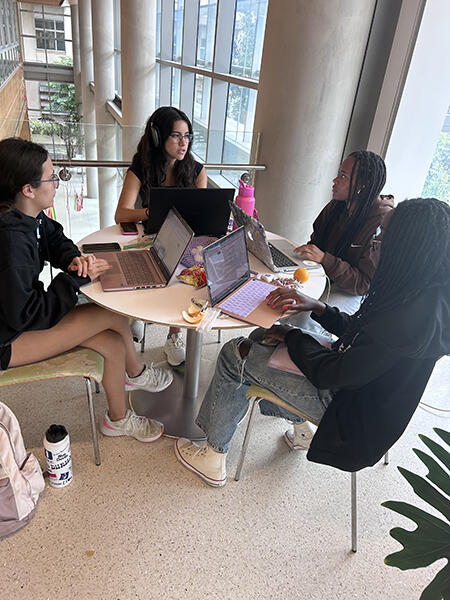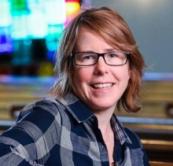
When Gabriella Torres was eight, she needed steroids to control asthma and allergies. Then her allergist recommended she take up swimming, and it helped. When she was nine, her younger brother was diagnosed with leukemia. He was treated and recovered. But watching him go through that left an impression.
As she got older, Torres had nothing but questions. Why did swimming improve her asthma? Why did her brother get so sick? And why did treatment work for him when it doesn’t for so many other children?
Torres was driven to find the answers. In college at New York University, she thought about becoming a pediatric oncologist; she pursued research experiences recommended for students interested in medicine. But then during her junior year an internship at a pharmaceutical company got her interested in pursuing a PhD. “I had never heard of getting a PhD before that,” said Torres, who is from New York City, where her parents are chefs. “But I was able to see that I could use my love of thinking critically about problems long term but still work on a project that relates directly to helping people.”
Torres was on the swim team in college and spent much of her free time training. But she got as much research experience as she could, then applied to the integrative immunobiology PhD program at Duke University School of Medicine in 2023.
Torres didn’t get in. Her goal of becoming a scientist could have ended there. Instead, she received a call from Johnna Frierson, PhD, associate dean of equity, diversity, and inclusion for the basic sciences at the School of Medicine, asking her if she’d be interested in applying for Duke’s PRIME PREP Program, which provides a year of research experience to recent undergraduates.
Torres interviewed for PRIME PREP and got in, then she spent time at Duke conducting research in the lab of Stacy Horner, PhD, associate professor in integrative immunobiology.




